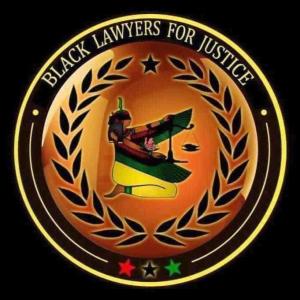Over development and the crisis facing Black DC residents.
— Attorney Malik Z. Shabazz
WASHINGTON, DC, UNITED STATES, October 25, 2024 /EINPresswire.com/ — In a powerful display of community activism, attorney Malik Zulu Shabazz hosted a significant news conference on October 22, 2024, at the John A. Wilson District Building in Washington, D.C. The event, titled “Addressing Gentrification: Over-development and the Black Crisis in the Nation’s Capital,” gathered a diverse coalition of community organizations, activists, and concerned residents to address the critical issue of gentrification in the heart of the District.
The gathering emphasized the substantial impact of gentrification on Black residents in Washington, D.C., that has witnessed dramatic shifts in demographics and property values in recent years. Shabazz, who serves as the Lead Counsel for Black Lawyers for Justice, pointed to alarming statistics: a devastating decline in Black-owned property and skyrocketing real estate prices that are pushing long-time residents out of their neighborhoods and preventing new Black residents from moving into the District.
The crisis in affordable housing is real, and the effects are being felt disproportionately by Black families, Shabazz asserted, articulating the urgent need for action. He argued that the pressures of gentrification were compounded by a systemic attack on Black elected officials, including the recent indictment of Ward 8 Councilman Trayon White, who has been a vocal advocate for his constituency amid mounting challenges.
Community leaders proposed a citywide “moratorium on all new construction and development” until equity and fairness could be assured under judicial or referendum mandates. This bold call for action reflects a growing frustration with the pace of development that many believe is prioritizing profit over people.
At the forefront of these discussions was the notion of reparations, which Councilman Kenyan McDuffie has sought to address through his proposed DC Reparations Bill. Voices at the conference demanded that reparations must go beyond mere discussion and materialize into meaningful support for those affected by the historical and ongoing injustices faced by Black residents.
As gentrification continues to threaten the livelihoods of Black contractors and laborers, Shabazz’s coalition called for legislative guarantees to ensure that 40% of city building contracts are awarded to Black firms and workers. This measure aims not only to uplift Black entrepreneurship but also to guarantee that local communities can benefit from the city’s development rather than being displaced by it.
This collective action precedes a major upcoming conference, “The Crisis and Conspiracy to Destroy Black Washington D.C.,” scheduled for October 26 at Union Temple Baptist Church. The event is set to rally community members, activists, and supporters to forge a united front against the multifaceted issues of gentrification and social injustice.
Reflecting on Washington’s history, Shabazz and others drew parallels between the current landscape and the challenges faced during the tenure of the late Mayor Marion Barry. Barry was a transformative figure who championed job creation, youth employment, and the empowerment of Black Washingtonians, advocating for self-governance and equity in the face of federal resistance. Barry’s initiatives to support underprivileged youth, such as summer jobs programs that partnered with local employers to foster skills and mentorship, are cited as models for today’s crisis.
“There is a vital need to revive those programs that helped our community thrive”, remarked one community organizer. “We must support home-buying assistance for working-class families and ensure that families struggling to put food on the table have the resources they need.”
As the conversation around policing and public safety resurges, Shabazz and his allies argue for a reallocation of funds typically earmarked for expanding law enforcement. Instead, they call for increased investments in youth employment programs—a strategy to prevent crime by providing young people with stable job opportunities and mentorship.
The echo of Barry’s legacy resonates through the conference’s goals. Those present underscored that rather than merely increasing police presence, the focus should shift to creating environments where families and individuals can flourish with dignity, opportunity, and economic empowerment.
As Washington, D.C. grapples with the pressing realities of gentrification, the coalition’s efforts shine a light on the urgent need for an equitable approach to development that prioritizes the needs of long-standing residents—a vision rooted in community, collaboration, and a commitment to justice for all. With the rallying cry of leaders like Malik Zulu Shabazz and the experiences of residents who refuse to be displaced, the movement to protect Black Washington D.C. is gaining momentum and clarity in its mission.
As the conference approaches, the true test will lie in translating this momentum into tangible policies that both protect and empower the city’s richly diverse population. The stakes are high, and the fight for equity continues. Therefore, we are inviting all interested parties to attend The Crisis and Conspiracy to Destroy Black Washington D.C., on Saturday, October 26, beginning at 10:00 AM until 8:00 PM at Union Temple Baptist Church, 1225 W. St. SE, Washington, DC.
Ian Campbell
Manchester Global Solutions, Inc.
+1 202-709-3354
[email protected]
Visit us on social media:
Facebook
LinkedIn
Instagram
YouTube
Other
Legal Disclaimer:
EIN Presswire provides this news content “as is” without warranty of any kind. We do not accept any responsibility or liability
for the accuracy, content, images, videos, licenses, completeness, legality, or reliability of the information contained in this
article. If you have any complaints or copyright issues related to this article, kindly contact the author above.
![]()
Originally published at https://www.einpresswire.com/article/754972466/confronting-gentrification-malik-zulu-shabazz-leads-the-charge-for-black-washington-d-c






